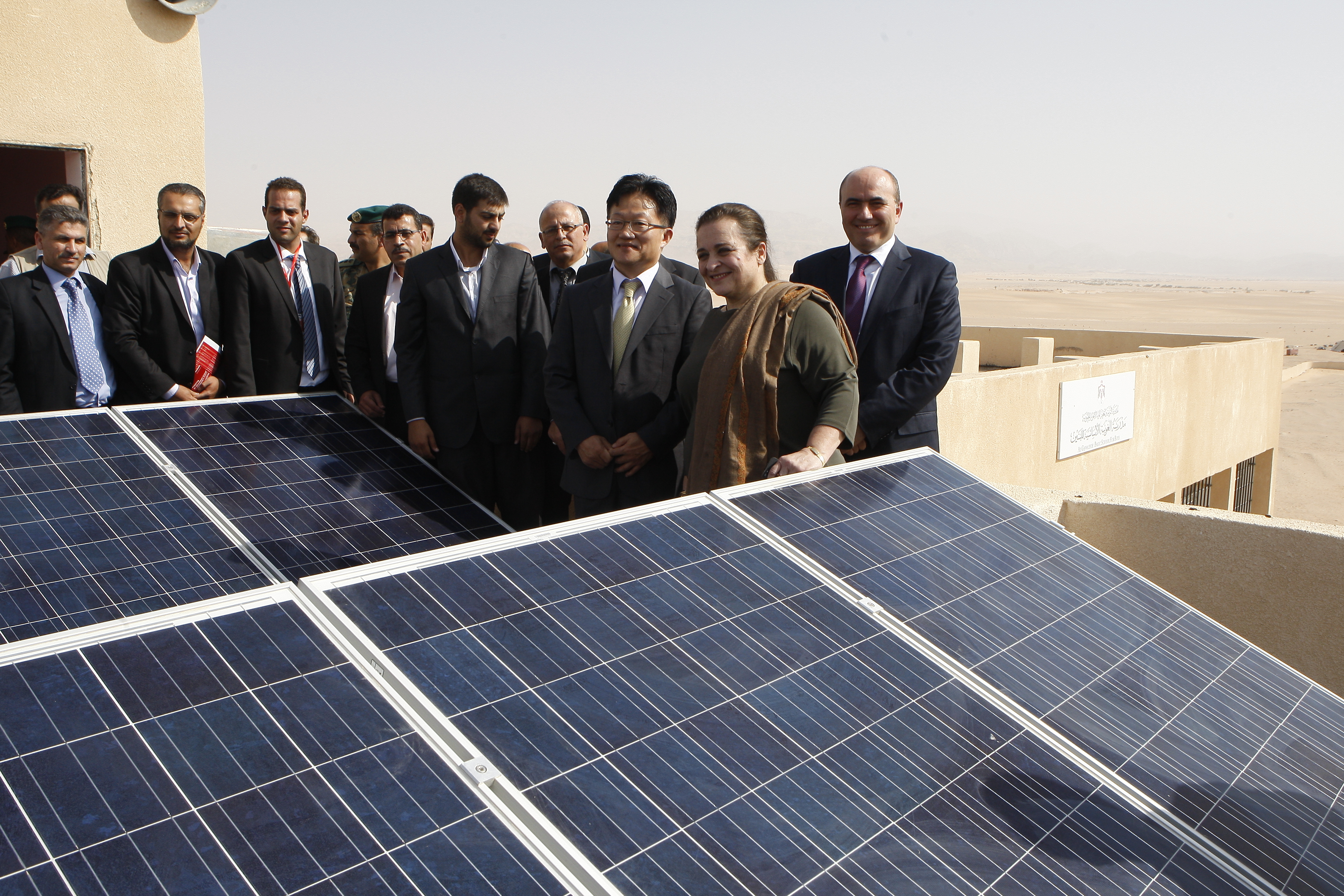Sustainable Education through Renewable Energy

As Jordan strives to take its place as a modern country on the world map, education takes an even greater role in raising the future generation. A country with few natural resources, Jordan looks to its human resources as the key element for its success in the markets of the region, and the prosperity,health, and security of its people. The country envisions a population of responsible, self-confident, and innovative learners.
The ability of the educational system to develop and nurture creativity and innovation among learners will be a cornerstone that contributes to the development of a knowledge economy in Jordan. To do this, the educational system must itself be capable of nurturing an environment that encourages individuals to think in creative ways, innovate to solve problems, and capture what is learned and apply this within the wider system. Despite the very high enrolment rates and the availability of access to schools across the Kingdom, the quality of education remains uneven. The average achievement in urban areas is higher than that in the rural and more remote areas.
One of the major challenges of the Ministry of Education is to provide the schools with the required budget to provide students with quality education in all schools across the Kingdom. Providing the schools with innovative techniques for income generation will greatly relieve the ministry of the financial burden as well as allowing students, regardless of geographic location access to quality education. A number of the smaller schools in remote areas across the country, (such as those within the pockets of poverty) lack the needed funds to enhance the learning environment by maintaining the schools facilities and to carry out simple maintenance on the school building. Examples of such maintenance include, replacement of broken windows, fixing of doors, bathroom facilities, paint etc. As a result, the school building itself falls into disarray as the routine maintenance is not carried out.
By providing the school with the needed funds through a sustainable method, the school will have the ability to budget for the care of the building as well as providing the much needed resources to enhance the learning achievement of the students through the re-allocation of the energy budget. At present students and teachers alike are subjected to extreme temperatures both in the summer and winter months. Through the introduction of renewable energy the schools may use cooling and heating within the classrooms enhancing the learning environment.
There is a great emphasis on the use of Information Communication Technology (ICT) within the national curriculum, however due to the heavy demand and high cost of electricity, not all schools are able to utilize computers within the learning day. Providing schools with an alternative and affordable source of energy will enable optimum learning opportunities through using all resources available to them.
In partnership with KIA Motors Company and Al Asalah, PAF launched two solar schools in the village of Al Ghweibah, Southern Jordan Valley. The project was fully sponsored by KIA Motors with the technical implementation by Al Asalah Company and in full partnership with the Ministry of Education and the Ministry of Energy. The system was tested during September – October 2013 with the official launch of the solar school project held in November 2013. Both schools are generating electricity with which they power the schools and the excess electricity is sold to the National grid, providing the schools with an income.
Throughout 2014 PAF partnered with other private sector companies including The Arab Potash Company, The Islamic bank and Al Bawaba to complete a further 11 schools across the Southern Jordan Valley region and Wadi Araba bringing the total number to 13 schools. PAF has recently been awarded an EU grant which will allow for an additional 18 schools to be completed during 2015 and 2016. The aim is to see all schools across Jordan benefitting from this system.
This project has moved forward in leaps and bounds and 2016 has marked the completion of 49 schools with a further 29 being completed at present.